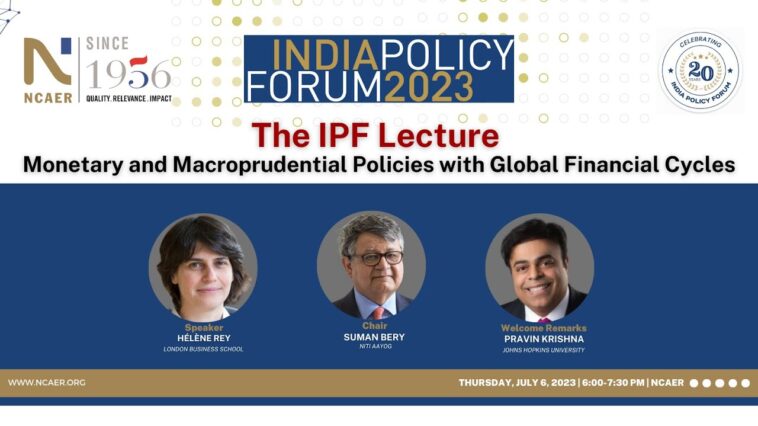In the spotlight of today’s news, Jay Powell, the Chairman of the Federal Reserve, restated that the Federal Open Market Committee (FOMC) will not hastily reduce interest rates as they monitor how President Donald Trump’s tariffs pan out. Powell offered these remarks during the introductory speech at the House Financial Services Committee. His stance was that, at the moment, it is wise to remain watchful and further understand the potential paths of the economy prior to contemplating any alterations to the current policy approach.
Powell drew attention to the fact that the actual effects of tariffs are dependent on several factors, notable among them being their final threshold. He added that the impact of these tariffs on inflation might be transitory or persist for more extended periods. This will depend on multiple variables such as the magnitude of tariff repercussions, the duration required to incorporate them fully into the pricing structure, and the essential task of sustaining longer-term inflation expectations which are firmly grounded.
The head of the Federal Reserve further commented on the economic expectations related to these tariffs. Powell noted that these prospects and the corresponding fiscal impacts achieved their highest point in April. However, the trend has seen a dip since then. Yet, Powell cautioned that the surge in tariffs implemented this year could potentially escalate prices and exert adverse effects on economic activities.
Today, another pertinent opinion surfaced from the President of Cleveland’s Federal Reserve, Beth Hammack. During a discourse at the Monetary Policy Forum in London, Hammack expressed her views. She said that, as of now, she does not perceive the U.S. economy to be deteriorating to the degree that would warrant impending rate reductions. However, she maintains a cautious perspective toward such a possibility.
She emphasized the importance of a balanced approach in the face of mounting pressures on both components of their mandate. Hammack stressed, ‘If our dual objectives are threatened, holding the policy rate steady for an extended period might be the most prudent decision. This balances the risks stemming from both escalating inflation and diminishing labor market activity.
Additionally, consumer confidence figures this morning revealed an unanticipated dip in June. A measure undertaken by the Conference Board indicated a decline to a reading of 93.0 compared to 98.4 in May. This decrease erased nearly half of May’s substantial gains in confidence on consumers’ current situation and future expectations.
Inflation expectations for the forthcoming 12 months moderated to 6.0% as compared to 6.4% measured in May and 7% back in April. Meanwhile, the focus remained on the Middle Eastern affairs, particularly between Israel and Iran, who both appear to be gingerly treading around a very unstable truce.
Israel had earlier confirmed the destruction of a radar setup near Iran’s capital. It justifies this action as a responsive measure against Iran’s breach of the ceasefire. However, Israel conceded after a conversation that it would abstain from advancing any further attacks.
In today’s stock market, stocks have shown an upward trend albeit below the highs struck when a ceasefire was declared, creating a rather unstable trading atmosphere. The prominent market index, S&P 500, has seen an augmentation of near about 1 percent. On the other hand, the price of crude oil recorded a dip of roughly 5%.
The decrease in crude prices was a reaction to the news of China’s continued procurement of oil from Iran. This news suggests a potential alleviation in the pressure on Iran amid a new ceasefire agreement with Israel. Iran’s oil exports largely end up in China, frequently through unconventional means and modest refineries, accounting for over 90% of the exports.
Almost half of China’s total oil imports navigate through the Strait of Hormuz. In other financial news, Morgan Stanley deemed Chewy as its ‘top pick’ after assessing the impacts of the addition of clinics to the company’s growth narrative.
Morgan Stanley holds a positive forecast for Chewy, viewing its clinic segment as a structural boost with high chances of success. On the other hand, well-known doughnut company, Krispy Kreme, is feeling the heat after the termination of a key partnership, effective from July 2nd.
The CEO of Krispy Kreme stated that attempts to align costs with the unit demand did not succeed, leading the partnership to become unsustainable for the company. Meanwhile, U.S. auto safety regulators have launched an investigation based on reports that Tesla’s self-driving taxi services may have breached traffic laws during their inaugural day of paid rides.
The National Highway Traffic Safety Administration confirmed that it is collecting further data from Tesla regarding the reported incidents. They clarified that the agency does not endorse “new technologies or vehicle systems in advance, but it is manufacturers’ responsibility to guarantee that each vehicle meets safety standards.
The agency informed that it will pursue protection of road safety if necessary, upon evaluation of incident reports and any other pertinent information about potential safety flaws.

